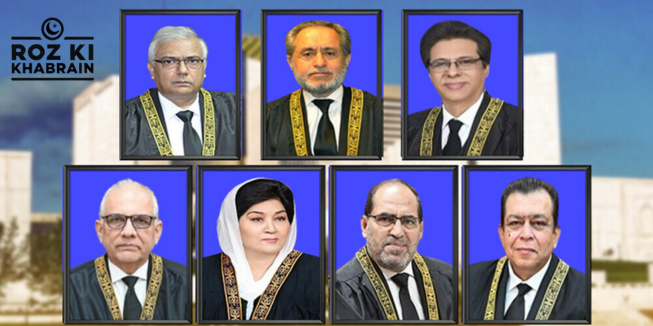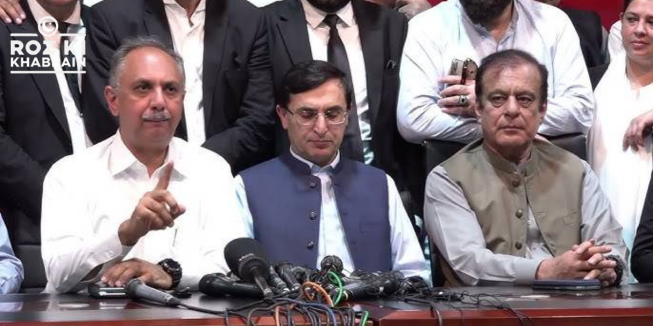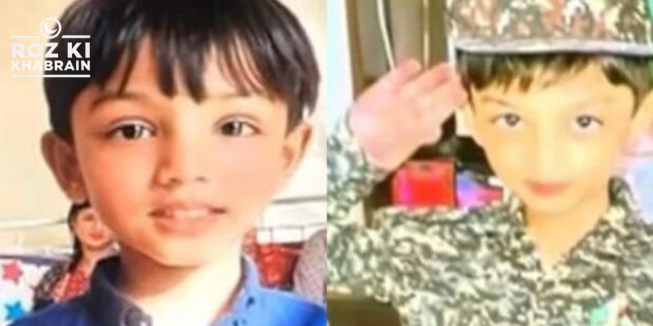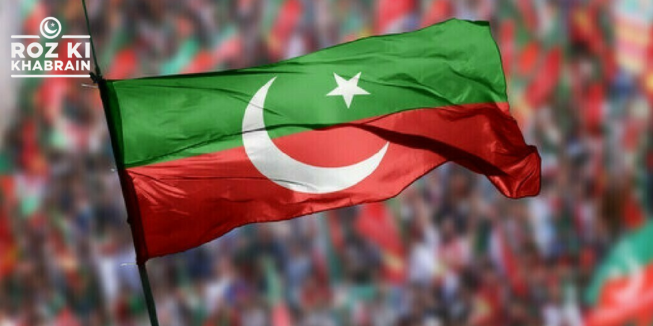Supreme Court Seeks Clarification on Military Trials of May 9 Rioters
The seven-member constitutional bench of the Supreme Court, led by Justice Aminuddin, has adjourned the hearing on the intra-court appeal challenging the trial of civilians in military courts.
The case revolves around the military trials of those involved in the May 9 riots, with the bench questioning the legal grounds and justifications for proceeding with these trials.
At the start of the hearing, the bench raised critical questions, particularly focusing on the inconsistencies in handling the cases related to the May 9 events.
Concerns Raised by Justices
Justice Naeem Akhtar Afghan, addressing Ministry of Defense lawyer Khawaja Harris, remarked, “You are carrying a basket full of questions,” as Harris attempted to present his arguments.
Justice Mussrat Hilali expressed concerns about the authority to decide which individuals should be tried in military courts, questioning the basis for such decisions without suspending the Constitution. She asked, “Can you provide an example where a civilian has been tried in a military court without suspending the Constitution?”
Justice Muhammad Ali Mazhar, noting that the FIR for all May 9 suspects was identical, questioned how distinctions were made between those tried in military courts and those in anti-terrorism courts. “Please provide one FIR for all these cases,” he requested.
Justice Naeem Akhtar Afghan pressed for clarification, asking, “How many accused were there on May 9, and can you show any order from the anti-terrorism court regarding those sent to military courts?”
Past Cases and Legal Precedents
Justice Hassan Azhar Rizvi brought up past terrorism cases, asking Khawaja Haris to clarify where trials had taken place for attacks on key installations, such as the GHQ and Karachi base. He also questioned where trials occurred for incidents like the attempt to hijack an army chief’s plane.
The bench revisited the Kulbhushan Jadhav case, discussing the implications of the Supreme Court’s decision to nullify Section 2D of the Army Act. Justice Muhammad Ali Mazhar asked, “What would be the effect of declaring this section null and void? Can cases like Kulbhushan Jadhav’s be tried in military courts now?”
Khawaja Haris argued that even in Jadhav’s case, a military trial wouldn’t be possible under the Supreme Court’s ruling. However, Justice Jamal Khan Mandokhel countered, suggesting the need to strengthen Pakistan’s prosecution system rather than relying on military courts.
Legal Framework and Fundamental Rights
Justice Hassan Azhar Rizvi inquired whether the May 9 incident was considered a more severe crime than terrorism, suggesting that with strong investigation and prosecution systems, the courts would be able to deliver justice.
Earlier, Khawaja Haris argued that Article 233 of the Constitution was irrelevant to the military court case and emphasized the proper interpretation of Article 8(5). Justice Muhammad Ali Mazhar referred to previous Supreme Court rulings during Pervez Musharraf’s era, where fundamental rights were not enforceable, highlighting the Court’s authority.
Justice Aminuddin, presiding over the bench, clarified that fundamental rights could be defended in courts, although their implementation might be temporarily suspended. Justice Musarrat Hilali pointed out that the accused in this case had not had their fundamental rights suspended, nor had an emergency been declared.
The hearing also explored the President’s and the executive’s powers to suspend fundamental rights, with Justice Jamal Mandokhel quoting former Chief Justice Ghulam Muhammad Mirza. He expressed dissatisfaction with Khawaja Haris’s arguments, suggesting that while strong, they did not fully persuade the bench.
The session concluded with Khawaja Haris promising to continue his arguments in the next hearing, as the court adjourned until then.




